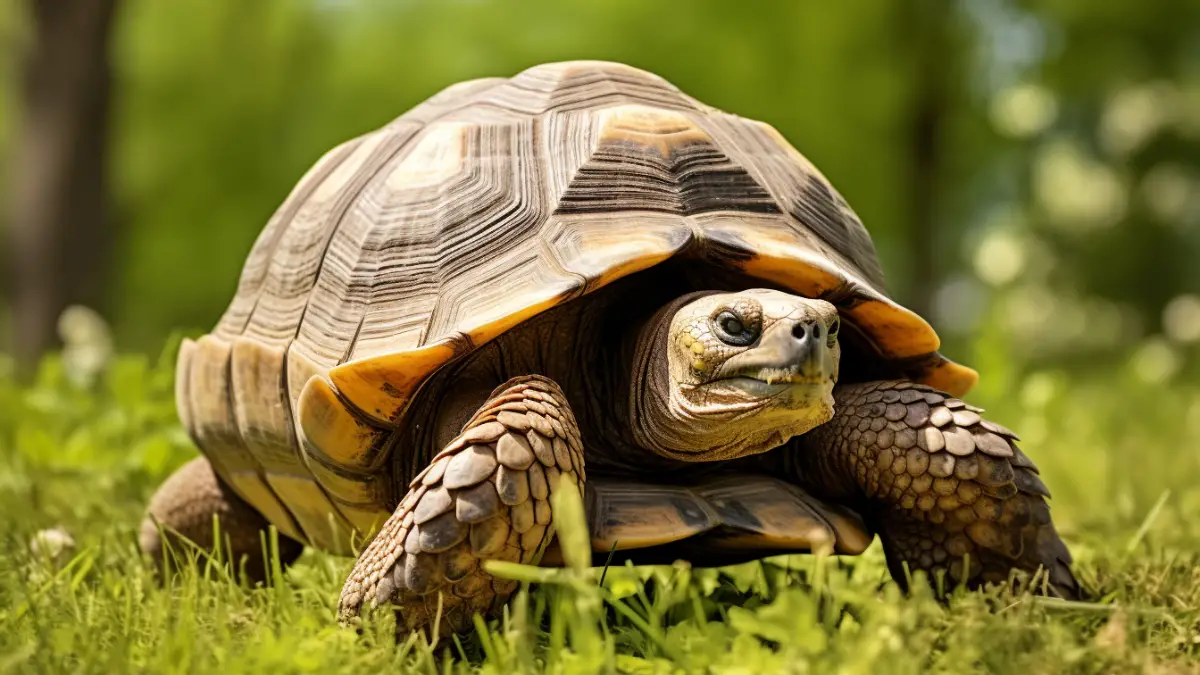How Often Do Tortoises Poop? Varies based on Diet, Age, and Species!
Pooping regularly is a sign that your tortoise is leading a healthy lifestyle. However, many new tortoise owners are not aware of their pet’s execution rate.
So, how often do tortoises poop? Pooping is dependent on diet, age, and their species. If you are giving wet food, then your tortoise will poop more frequently. If it takes dry food, then the frequency will decrease. A baby tortoise poops daily, whereas a juvenile poops after one day. Adults will poop two or three times a week, whereas the aged one will poop one to two times a week.
This is only a gist of the article. These sections are discussed briefly in the article. Stay with this article to get a clear idea about their excreting habit!
How Often Do Tortoises Poop According To Diet?
Contents
Diet can change the frequency rate of pooping in animals. The excretion rate of a tortoise is very much dependent on its diet.
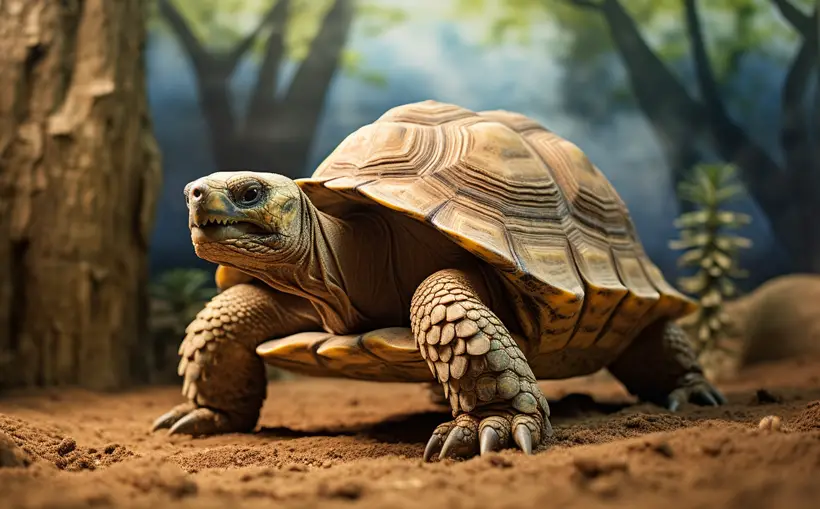
Wet Food
If your tortoise is taking mostly wet food in every meal, then the frequency of execution will increase. The gastrointestinal tract takes less time to digest wet food. The food easily converts into feces if a watery diet is ingested.
For example, wet food is given to the hatched or baby tortoise. Because their intestinal tract remains vulnerable, they can not digest foods that contain more fiber. So, their excretion rate increases due to more watery food. So, they can poop twice or on some days three times. But if it continues for successive 3 to 4 days then it needs dietary change or veterinarian checkup.
In the case of a juvenile, it can poop daily if given wet food in every meal. For the adult and old tortoises, wet food is not mandatory. Also, giving wet food in every meal is not recommended as well.
Dry Food
Food that contains more fiber and less water takes more time to digest. For example, the aged tortoise diet includes mainly dry foods. So their gastrointestinal tract has more time to digest the food. Ultimately, their excretion rate decreases due to ingesting dry food.
For the baby or newly hatched tortoise, giving dry food is prohibited. They can not digest dry foods. Rather it can damage their alimentary tract. They also might stop pooping due to food getting obstructed in the passage. In case you are giving only dry food and less water to the adult and old tortoise, their pooping frequency can delay for one to two days.
How Often Do Tortoises Poop According To Age?
The rate of excretion varies based on the age of the tortoise. Take a look at the following aspects to know their pooping habits according to their age.
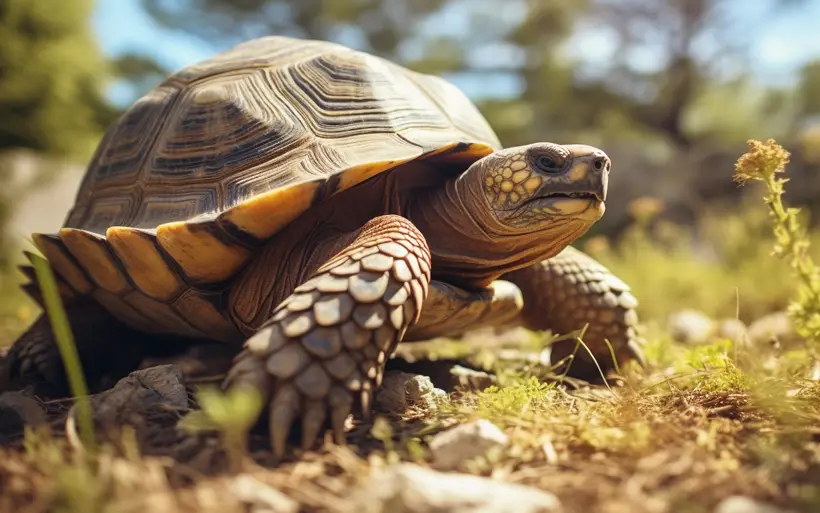
A few Days Immediately After Birth
After birth, their alimentary work rapidly since they are smaller. The babies need more food at that age for growth. While they ingest more food, it needs to digest more rapidly. Fortunately, digestion occurs quickly after birth. So, ultimately, the production of feces is also rapid in comparison to older age.
While their bodies produce more feces, they poop often. They excrete once daily. At an early stage, you may find your tortoise pooping twice daily. But it is a rare case. Also, their alimentary system is small. So they can not hold feces for a long time in their body. Also, during this age, they are given more watery or easily digestible food. So, the food quickly digests.
Excreting frequently after birth is normal. If it excretes after two or three days, then you need to be more careful about its diet. It can happen due to health issues as well. If you find your baby tortoise with a delayed excretion rate, take it to the vet immediately.
During Juvenile Age
Juvenile age of tortoises is considered between 3 to 5 years. After 3 years, a little change occurs in their digestive system. It started working a bit slower than before. So, they are found pooping after one day. It is more common. But they may also poop once after two days.
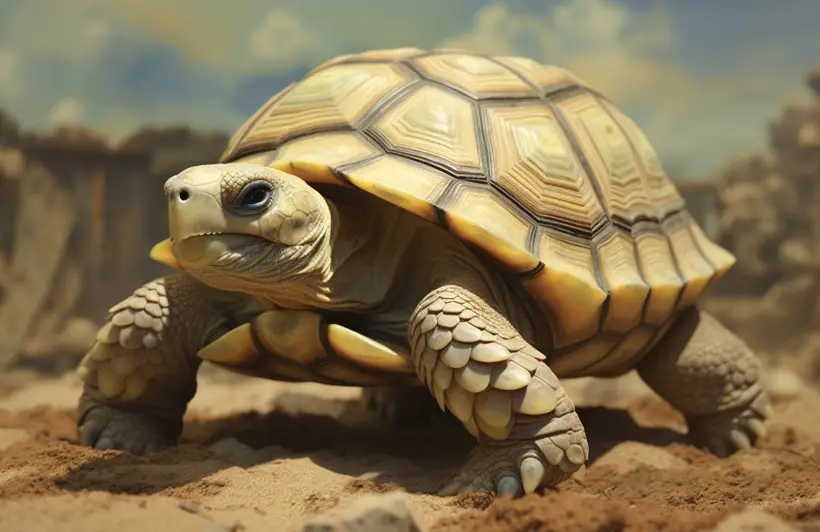
At a young age, their alimentary canal becomes a bit larger than before. So, foods can stay in the tract for more time. Also, during this age, foods that contain more fiber are given. It is the time when they start to get used to their normal dietary habits. So, the digestion process takes more time to form feces.
At a young age, your tortoise can skip one meal. So, if they do so, their body will take more time to form feces. Ultimately, the excretion rate also decreases. For a sudden change in the diet, your tortoise can face diarrhea. If the feces contain undigested food and runny, it is a sign of diarrhea. Therapeutic management of diarrhea should follow immediately, or take your pet to the vet.
You can get help from this video to know about the normal excreta of a tortoise.
While Mature Or During Adulthood
A tortoise starts being mature at the age of 10. It starts with eating a regular diet and digesting everything. Their digestive system starts working properly, which means it works more slowly. Whatever it eats will slowly digest.
Their digestive system works at such a slow rate that they skip meals for a whole day. An adult tortoise does not eat every day. Rather, it can skip 2-day meals a week. It is because their tummy already remains full due to a slow digestive rate.
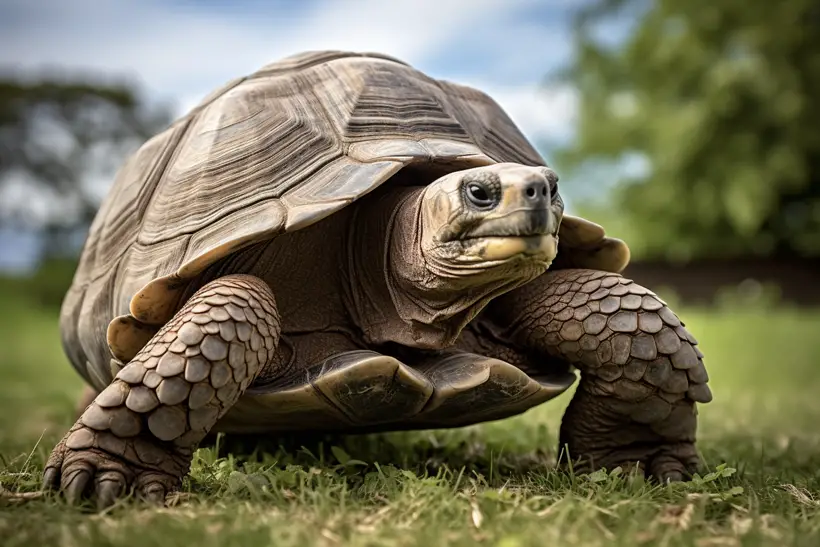
An adult tortoise has a longer digestive tract than a baby tortoise. So, food takes time to transform into feces and can remain in the tract for a long time. A mature tortoise poops once every second or third day. It means excreting two to three times a week is normal for an adult tortoise.
Aged Tortoise Or Senior One
The digestion rate in old age tortoises is very much slower during their whole lifetime. The aged tortoise mainly eats dry foods. Also, they drink water only when they are thirsty. So, in the absence of proper moisture, the digestion process becomes slower.
The digestive tract of a senior tortoise is larger. It can hold food for more time. Their body is created with this blessing that they can digest slowly. So, they can skip meals, too. Once they are full, they can skip the next meal.
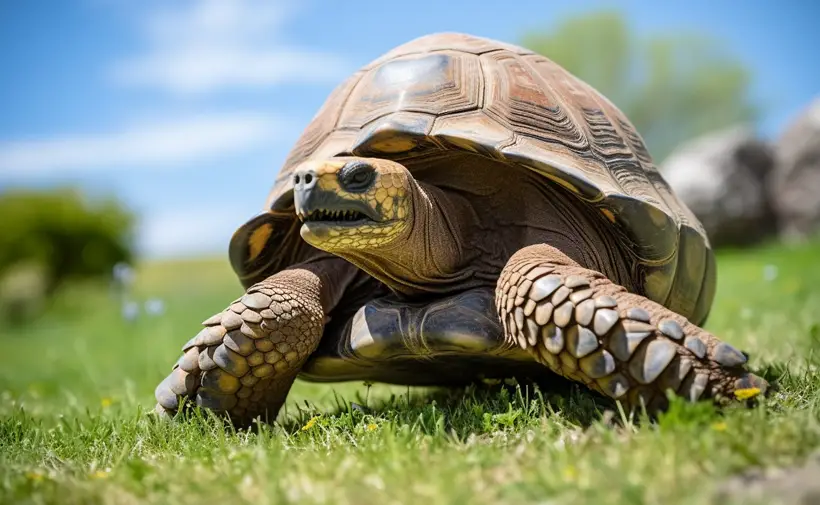
An aged tortoise can excrete one to two times a week. That means they poop once after every three to four days. Pooping daily is not normal for an aged tortoise. If it excretes daily, then take advice from the vet.
Vomiting or not excreting timely can occur due to gastrointestinal obstruction in the tortoise. Often, this causes serious conditions in your pet that need surgery.
How Often Do Tortoises Poop According To Species?
There are many species of tortoise present all over the world. The pooping rate depends on their species as well. It is obvious that not all the tortoises will poop at the same frequency. So, while buying a tortoise, make sure to know their species and pooping habit from the breeder.
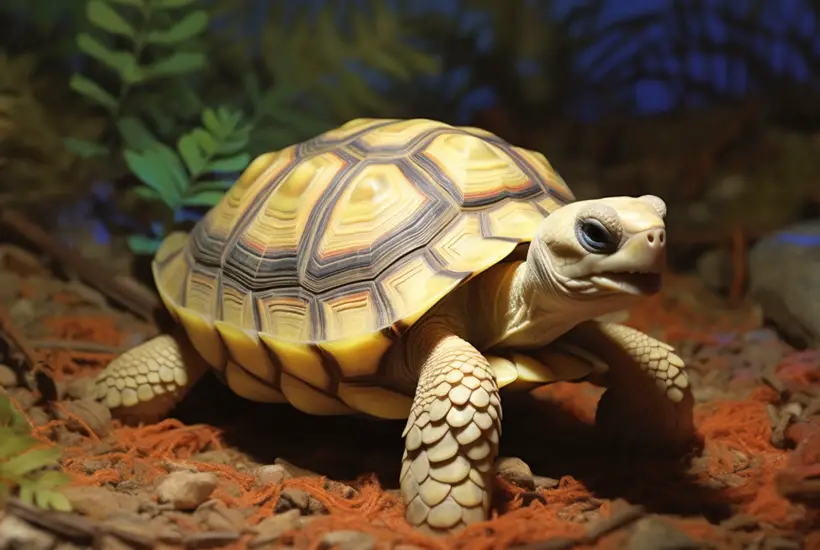
Knowing the species will help you further if you find that your pet poops in a different manner. Also, be careful while cleaning their poop. All the species of tortoise poop contain salmonella. It can cause disease in humans if transmitted while handling without gloves.
FAQs
These are some commonly asked questions by people about tortoise poop.
Bloody poop is abnormal in a tortoise. It indicates that there could be intestinal injury in your tortoise. A healthy tortoise poop is always brown or greenish.
Tortoise poop smells dump. If it is not cleaned timely, it will rot and spread a foul smell. Sometimes, the tortoise can not digest all the food properly. In that case, the poop will smell more badly.
White poop of your tortoise is normal. While pooping, tortoises also urinate. Their urine contains liquid and semi-solid contents, which are whitish. While pooping and urinating at the same time, the poop contains semi-solid materials and turns into white poop.
Conclusion
If your tortoise is pooping more or less frequently, it indicates health issues. Your tortoise needs immediate veterinary care at this moment. A healthy hatched-out tortoise poops more frequently, and that is once a day. On the other hand, pooping is not normal for an aged tortoise.
If you give watery food to an adult or aged tortoise, it will poop more rapidly. Pooping frequency is depending on which species your tortoise belongs from. Investigate briefly about the feeding and pooping habits of the species before buying.

